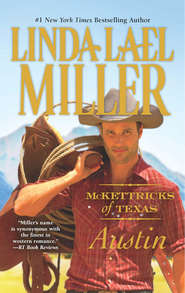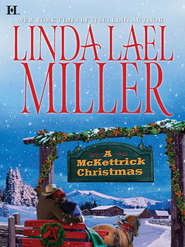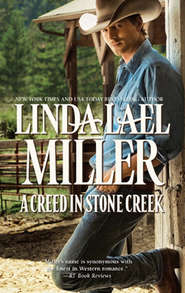По всем вопросам обращайтесь на: info@litportal.ru
(©) 2003-2024.
✖
Glory, Glory
Автор
Год написания книги
2018
Настройки чтения
Размер шрифта
Высота строк
Поля
His gaze skirting Glory as though she’d suddenly turned invisible, he greeted the boys by name and took a place at the counter. “Hi, Delphine,” he said, as the woman poured his coffee. “How’s my best girl?”
Glory concentrated fiercely on the second boy’s order, and when she’d gotten it, she marched into the kitchen and started cooking. She had to keep herself busy—and distracted—until Jesse finished his coffee and left the diner.
“What’s he doing here?” she whispered to her mother, when Delphine joined her to lift the basket out of the deep fryer and shake the golden fries free of grease.
Delphine smiled. “He’s drinking coffee.”
Glory glowered at her. “I’m going upstairs!” she hissed.
“That’ll fix him,” Delphine said.
In a huff, Glory took the cheeseburgers off the grill and the shakes off the milk-shake machine. She made two trips to the boys’ table and set everything down with a distinctive clunk. All the while, she studiously ignored Jesse Bainbridge.
He’d just come in to harass her, she was sure of that. He probably bullied everybody in Pearl River, just like his grandfather always had.
The jukebox took a break, then launched into a plaintive love song. Glory’s face was hot as she went back to the kitchen, hoping Jesse didn’t remember how that tune had been playing on the radio the first time they’d made love, up at the lake.
She couldn’t help glancing back over one shoulder to see his face, and she instantly regretted the indulgence. Jesse’s bold brown eyes glowed with the memory, and his lips quirked as he struggled to hold back a smile.
Glory flushed to recall how she’d carried on that long-ago night, the pleasure catching her by surprise and sending her spiraling out of her small world.
“That does it,” she muttered. And she stormed out to her car, collected her suitcase and overnighter, and marched up the outside stairs to her mother’s apartment.
The moment she stepped through the door, Glory was awash in memories.
The living room was small and plain, the furniture cheap, the floor covered in black-and-beige linoleum tiles. A portable TV with foil hooked to the antenna sat on top of the old-fashioned console stereo.
Glory put down her luggage, hearing the echoes of that day long, long before, when Delphine had taken a job managing the diner downstairs. Dylan had been fourteen then, Glory twelve, and they’d all been jubilant at the idea of a home of their own. They’d lived out of Delphine’s old rattletrap of a car all summer, over at the state park next to the river, but the fall days were getting crisp and the nights were downright cold.
Besides, Delphine’s money had long since run out, and they’d been eating all their meals in the church basement, with the old people and the families thrown out of work because of layoffs at the sawmill.
Dylan and Glory had slept in bunk beds provided by the Salvation Army, while Delphine had made her bed on the couch.
Pushing the door shut behind her, Glory wrenched herself back to the present. It was still too painful to think about Dylan twice in one day, even after all the time that had passed.
Glory put her baggage in the tiny bedroom that was Delphine’s now, thinking that she really should have rented a motel room. When she’d suggested it on the telephone, though, her mother had been adamant: Glory would stay at the apartment, and it would be like old times.
She paced, too restless to unpack or take a nap, but too tired to do anything really demanding. After peeking out the front window, past the dime-store wreath with the plastic candle in it, to make sure Jesse’s car was gone, she went back downstairs for her coat.
The cook who took Delphine’s place at two-thirty had arrived, along with a teenage waitress and a crowd of noisy kids from the high school.
Delphine handed Glory her coat, then shrugged into her own. “Come on,” she said, pushing her feet into transparent plastic boots. “I’ll show you the house Harold and I are going to live in.”
The snow fell faster as the two women walked along the familiar sidewalk. Now and then, Delphine paused to wave at a store clerk or a passing motorist.
They rounded a corner and entered an attractive development. The houses had turrets and gable windows, though they were modern, and the yards were nicely landscaped.
Glory remembered playing in this part of town as a child. There had been no development then, just cracked sidewalks that meandered off into the deep grass. The place had fascinated her, and she’d imagined ghost houses lining the walks, until Dylan had spoiled everything by telling her there had been Quonset huts there during World War II to accommodate workers at the town smelter.
Delphine stopped to gaze fondly at a charming little mock colonial with a snow-dusted rhododendron bush growing in the yard. The house itself was white, the shutters dark blue. There were flower boxes under all the windows.
Glory’s eyes widened with pleasure. This was the kind of house her mother had always dreamed of having. “This is it?” she asked, quite unnecessarily.
Proudly Delphine nodded. “Harold and I signed the papers on Friday. It’s all ours.”
Impulsively, Glory hugged her mother. “You’ve come a long way, baby!” she said, her eyes brimming with happy tears.
Both of them stood still in the falling snow, remembering other days, when even in their wildest dreams neither of them would have dared to fantasize about owning a house such as this one.
“Are you going to keep the diner?” Glory asked, linking her arm with Delphine’s as they walked back toward the center of town.
Delphine’s answer came as no surprise. After all, she’d worked and scrimped and sacrificed to buy the place from her former employers. “Of course I am. I wouldn’t know what to do if I couldn’t go down there and make coffee for my customers.”
With a chuckle, Glory wrapped her arm around her mother’s straight little shoulders. “I imagine they’d all gather in your kitchen at home, they’re so used to telling you their troubles over a steaming cup.”
Back at the apartment, Delphine immediately excused herself, saying she had to “gussy up” for the Stewart-Grant festival at the Rialto.
“Sure you don’t want to come along?” she queried, peering around the bathroom door, her red hair falling around her face in curls. “Harold and I would be glad to have you.”
Glory shook her head, pausing in her unpacking. “I feel as though parts of me have been scattered in every direction, Mama. I need time to gather myself back together. I’ll get something light for supper, then read or watch TV.”
Delphine raised titian eyebrows. “You’re getting boring in your old age, kid,” she said. “Just see that you don’t eat over at Maggie’s. Last week one of the telephone linemen told me he got a piece of cream pie there that had dust on top of it.”
“I wouldn’t think of patronizing your archrival, Mama,” Glory replied, grinning. “Even though I do think serving pie with dust on it requires a certain admirable panache.”
Delphine dismissed her daughter with a wave and disappeared behind the bathroom door.
As it happened, Glory bought spaghetti salad in the deli at the supermarket and ate it while watching the evening news on the little TV with the foil antenna. Downstairs in the diner, the dinner hour was in full swing, and the floor vibrated with the blare of the jukebox.
Glory smiled and settled back on the couch that would be her bed for the next several weeks, content.
She was home.
After the news was over, however, the reruns of defunct sitcoms started. Glory flipped off the TV and got out her mother’s photo albums. As always, they were tucked carefully away in the record compartment of the console stereo, along with recordings by Roy Orbison, Buddy Holly, Ricky Nelson and Elvis Presley.
Delphine probably hadn’t looked at the family pictures in years, but Glory loved to pore over them.
Still, she had to brace herself to open the first album—she was sitting cross-legged on the couch, the huge, cheaply bound book in her lap—because she knew there would be pictures of Dylan.
He smiled back at her from beside a tall man wearing a slouch hat. Glory knew the man’s name had been Tom, and that he’d been mean when he drank. He’d also been her father, but she didn’t remember him.
The little boy leaning against his leg, with tousled brown hair and gaps in his grin, was another matter. Gently, with just the tip of one finger, Glory touched her brother’s young face.
“When am I going to get over missing you, Bozo?” she asked, in a choked voice, using the nickname that had never failed to bug him.
Glory stared at Dylan for a few more moments, then turned the page. There she made her first photographic appearance—she was two months old, being bathed in a roasting pan on a cheap tabletop, and her grin was downright drunken.
She smiled and sighed. “The body of a future cheerleader. Remarkable.”











